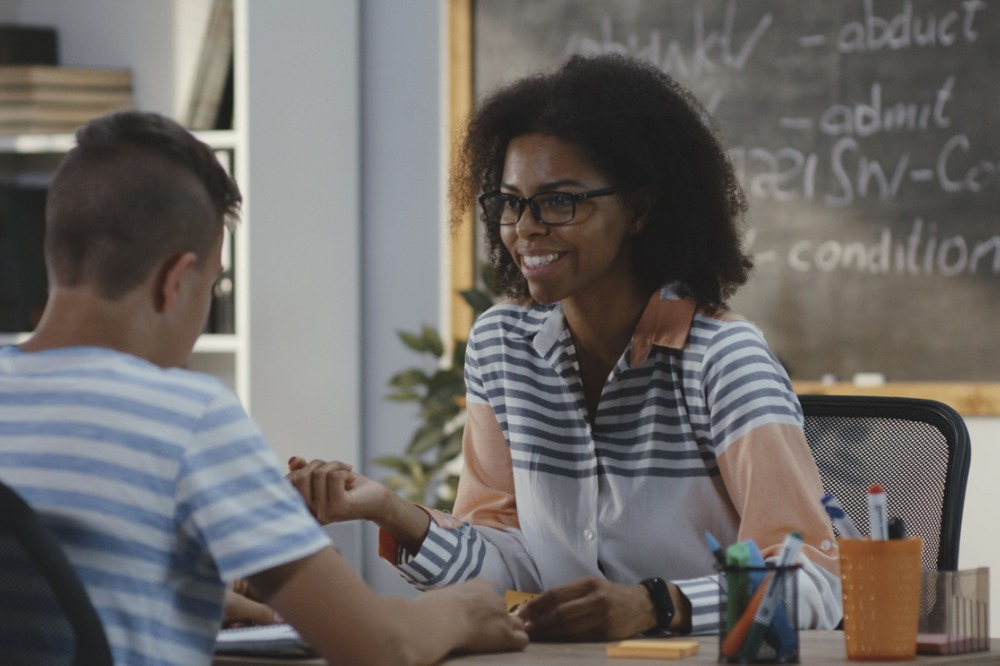
Today, the Australian Government became the first to launch a National Children’s Mental Health and Wellbeing Strategy in a move that marks a “fundamental, cultural shift” in approaches to improving the mental health and wellbeing of Australia’s youth.
The launch of the Strategy – developed by the National Mental Health Commission – comes as states and territories ramp up mental health support for young peoples impacted by the COVID-19 pandemic.
Last week, the Victorian Government announced that every public secondary and specialist school in the state will now have access to vital mental health support at school following the roll out of its $51.2m mental health initiative.
The new national strategy’s four focus areas outline the requirements for “an effective system of care for children”, including: family and community; service system; education settings; and evidence and evaluation.
Announcing the new Strategy today, Minister for Health and Aged Care, Greg Hunt, said proper support can improve long-term outcomes and can help children achieve their full potential in life.
“To ensure that every child has the opportunity to grow up in a healthy and supportive environment that helps them, and their families and communities, to thrive, we need a mental health and wellbeing system that is well-designed, comprehensive, and nationally consistent,” he said.
Assistant Minister to the Prime Minister for Mental Health and Suicide Prevention, David Coleman, MP pointed to research showing while half of all adult mental health challenges emerge before the age of 14, few children below the age of 12 receive professional support.
“As a nation, we need to acknowledge this and do everything we can to change it. Our Government is committed to the task,” Assistant Minster Coleman said.
“This is the first time a national government has developed a strategy that considers mental health and wellbeing of our children, as well as their families and communities who nurture them.”
National Mental Health Commission Chair, Mrs Lucy Brogden AM and CEO, Ms Christine Morgan said the Strategy is “one of the most important and meaningful and significant pieces of work” the Commission has done.
“This Strategy proposes a fundamental, cultural shift in the way we think about the mental health and wellbeing of our children, including a change in language and the adoption of a continuum-based model of mental health and wellbeing,” Brodgen and Morgan said.
“We could not have done it without our advisory group led by our co-chairs, Professors Frank Oberklaid and Christel Middledorp, and I would like to thank them for their incredible work.”
A growing body of research has shown that a large number of Australian schools have been struggling under the weight of worsening student mental health issues.
A recent nationwide study of teachers revealed a staggering 98% said poor mental health negatively impacts on their students’ ability to succeed at school, but less than half of all respondents felt well-equipped to respond to mental health issues in their students, with lack of school resources (time/staff/space) cited as the primary challenge (42%).
Dr Michael Carr-Gregg, one of Australia's highest profile psychologists, says that as schools come out of lockdown it is important that young people are taught social and emotional competencies.
“Never before has it been more important for young people to know things like anger management, problem-solving, decision making and conflict resolution skills,” Dr Carr-Gregg told The Educator.
“This is an unrivalled opportunity to acknowledge the importance of social and emotional competencies and their utility in building resilience.”
Dr Carr-Gregg said young people should also be taught about positive self-talk and the importance of the old adage: “See life as it is but focus on the good bits”.
“It’s been a tenant of positive psychology in education for a long time but now we need all schools to get on board and emphasise these important mindsets,” he said.
“We need to be mindful of building those ‘islands of competence’ – things like art, music, dance, music and sport, which all play big role in helping build resilience because they’re the mechanisms through which young people can figure out who they are and have confidence.”


